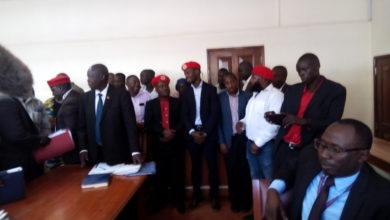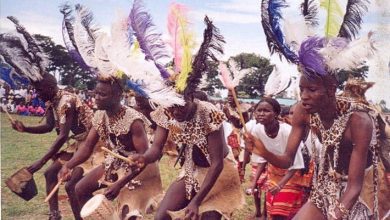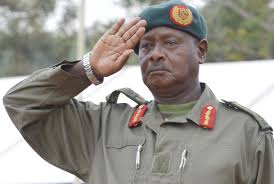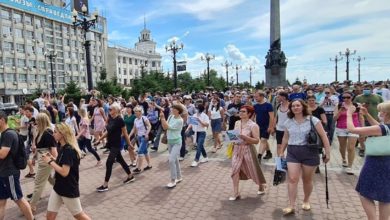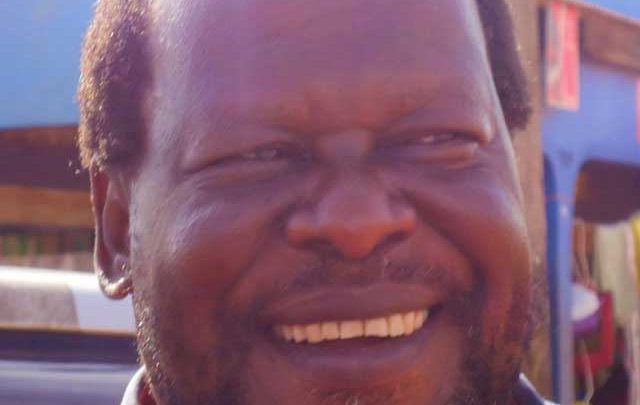
Politics
UGANDA: THE WORST AND BEST UGANDA LEGISLATORS-PROF. OGENGA LATIGO.
We shall not votes MP, just go sleep in Parliament, or wait to come attand burial
The Legislative Assembly is constituted by representatives elected by the people. The State is divided into ninety-three electorates with one member representing each electorate. Elections must be held every four years or at a lesser period with the consent of the Governor. Members of the Assembly are elected for a four-year term under a system of optional preferential voting within each electorate.
The majority of Members elected to the Legislative Assembly are members of the major political parties. There have been a number of Independent Members elected to the Assembly in recent years and the current Parliament has seen the election of the first Member of a minor party to the Assembly (The Greens). Members of parties vote along party lines unless the matter being voted upon is one which the parties allow Members to vote according to their consciences.
The Ministry or Cabinet consists of Members of Parliament chosen from the party or parties commanding a majority in the Legislative Assembly. This Executive Government remains in office for as long as it commands the confidence of the Assembly, from which the majority of Ministers are chosen.
To legislate
The Parliament makes laws by considering bills which, if agreed to by both Houses, are then sent to the Governor for Royal Assent. Bills are considered by being debated in each House and, if further investigation is needed, by referral to a committee of a House for inquiry and report.
Both Houses in New South Wales can initiate legislation. However, the Legislative Assembly, as the seat of Government, is the only House where money bills may be initiated. In addition, if the Legislative Council fails to pass a bill from the Assembly that bill may become law after being agreed to by the majority of voters at a referendum.
While the majority of legislation introduced into the Legislative Assembly is brought in by Ministers, all Members of the Legislative Assembly can introduce legislation. Bills introduced by Members who are not Ministers are referred to as “Private Members’ Bills”.
To approve the Government’s request for money
One of the fundamental roles of Parliament is to consent to the appropriation of monies. The Government must initiate any legislation appropriating money for expenses such as the annual State Budget, or legislation imposing new taxes or levies, in the Legislative Assembly.
As the seat of Government, the Legislative Assembly is able to grant approval for any legislation appropriating money for the “ordinary annual services of Government” with or without the support of the Legislative Council. Accordingly, in New South Wales the Upper House is unable to prevent the passing of the Government’s budget.
Other roles
Other roles that the Legislative Assembly has are to scrutinise the activity of the Government and keep it accountable to the people of New South Wales, and advising Government on public policy.
The Legislative Assembly does this by:
GULU-UGANDA: The recent best and worst Uganda Legislators (MP) participation has been a more realistic cosmopolitan approach that has developed recently under the heading of global democracy.
Oyeng Yeng News political pundit argued that the rule of law and justice advocates the weakening but not abolition of the state form of the strengthening of international and transitional institutions.
Short of a world government state sovereignty should be further weakened and subjected to moral and legal norms. The likes of the Opposition Leader Betty Aol Ocan, Hon Komakech Lyandro, the best highly ranked who came first and second runner up are to be praised.
While the worst Northern Uganda MPs who became the worst are Hon Oryem Okello never entered parliament, Prof. Moirés Ogenga Latigo and Oscar Omony according to report they have never entered parliament.
The worst Acholi MPs in their advocates in August house they suggested measures that include strengthening through appealing to UN, and other International Institutions, International Criminal liberty that Uganda jurisprudent has been weakened and only support the corrupt system.
This could be for the actions of reforming political and military leaders, improved standard of accountability and democracy to judge state policies.
However, when our legislators have turned themselves to insinuating the ruling power, how can you think the likes Prof. Ogenga Latigo could fail to appear and represent his people of Agago North in his legislative roles.
Thus, by making or appearing to in that form of fooling their voters, they have extended the one man rule to use rule of law for international relation, developing globalization from below.
The weak Uganda legislators instead of being a wash dog to monitor and involve NOGs and Civil Society in state and international decision making. Promoting poverty amidst, why our community lives in abject poverty despite the fact that we have abandoned resources, monitoring poverty eradication, building rural populations to monitor the economy.
Instead they left a weak parliament and the arms of government to manipulate international players to favor cosmopolitan, normative or substantive democracy.
Regional power, (The Great Lakes Region) block, the East African Assembly, Southern African States, West African Economic Block and North African States to build hegemony of African Union federations should ensure compliance with constitutional arrangements and defend and promote the role of public services.
As Richard Falk the American scholar put it, the world order of liberal cosmopolitanism no longer states centric, although the role of state remains crucial even if reconfigured in light of legal and ethical norms.
The legislator of the August House should be reminded that globally, the cosmopolitan supported the early Humanitarian wars of the new world order if they should not put their legislation.
But, the rise of the neo-conservative in Washington, the aggressiveness American pasture after 9/11 and war in Iraq, the Kampala regime took the advantages to use the war of terrorism in Somali and chaos in the Great Lakes Region and many to changed sides.
The cosmopolitan emphasis, the radical nature of the break from previous opportunities of stringing international institutions and developing civil society, which had started in the 1990s.

